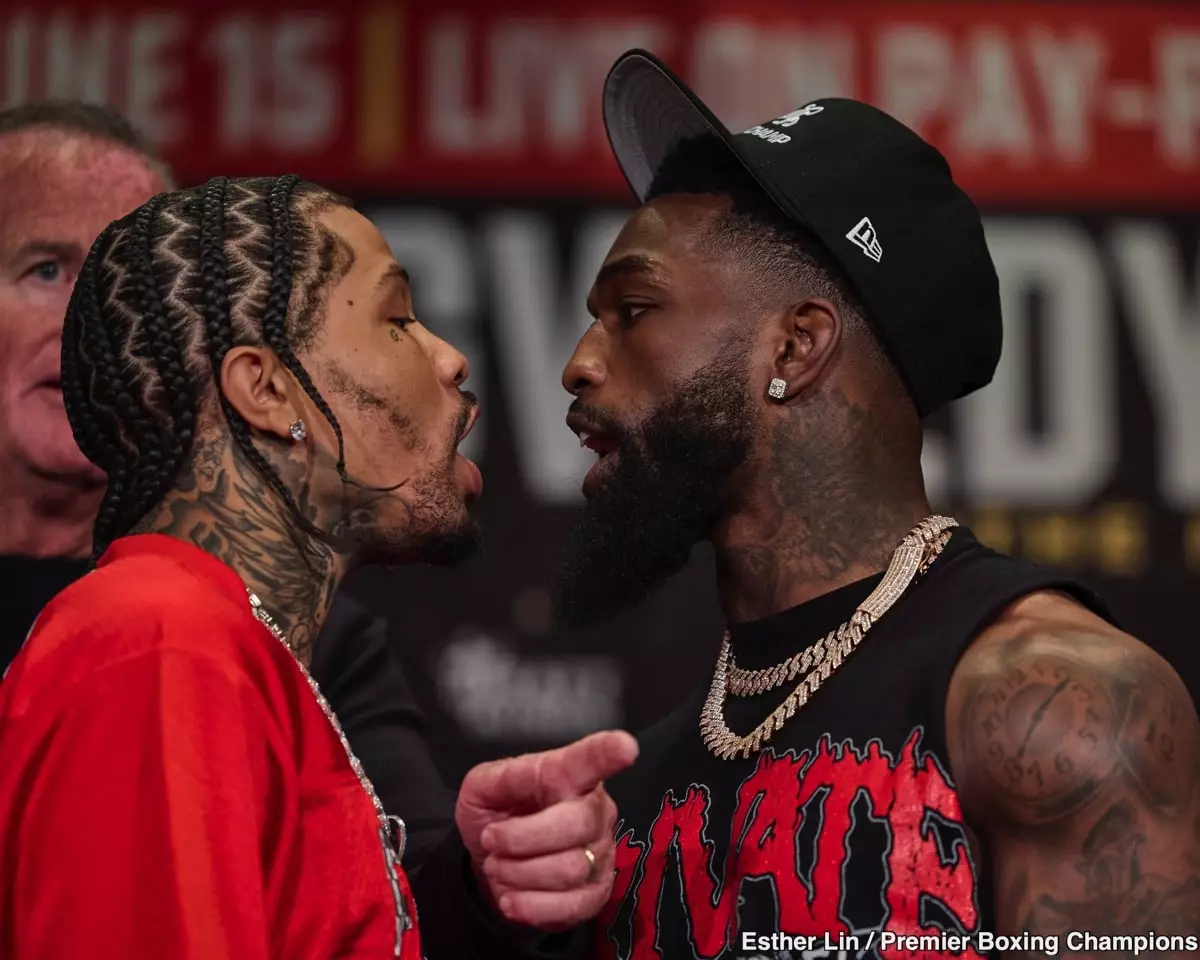In a recent press conference ahead of his fight with Frank Martin, Gervonta “Tank” Davis claimed to have intimidated his opponent and his brother. Davis believes that he got into Martin’s head, creating a sense of fear and intimidation. While mind games and psychological warfare are common in the world of boxing, it’s important to question the effectiveness of such tactics. Does intimidation truly impact a fighter’s performance in the ring, or is it merely a show for the audience?
Davis’ confidence in his ability to intimidate Martin raises doubts about his understanding of his opponent’s mindset. While projecting strength and dominance may instill fear in some fighters, Martin’s determination to win and change his life through a victory suggest that intimidation alone may not be enough to secure a win. Additionally, the mention of a potential rematch and the financial incentives associated with it indicate that Martin is motivated by more than just fear of his opponent.
While Davis may believe that he has successfully intimidated Martin, the true test will come in the ring on June 15th. Martin’s previous experiences, training, and skill set will ultimately determine his performance, rather than any perceived intimidation during a face-off. It’s essential to recognize the limitations of psychological warfare and focus on the physical and tactical aspects of boxing.
Furthermore, Davis’ reference to sparring with Martin in the past raises questions about the relevance of this experience. Sparring sessions can provide valuable insights into an opponent’s style and weaknesses, but they do not guarantee success in a professional fight. Martin has likely evolved as a fighter since his sparring sessions with Davis, making it crucial for Davis to approach this fight with a fresh perspective.
Davis’ mention of “setting traps” and controlling the fight reveals his confidence in his ability to outsmart his opponents. By luring them into unfavorable positions and exploiting their mistakes, Davis believes he can dictate the pace and outcome of the fight. However, the effectiveness of this strategy may be limited against more skilled and strategic boxers.
Facing primarily sluggers in his previous fights, Davis has not been tested against opponents with high boxing IQs who can evade his traps and counter effectively. The absence of experience against elite boxers like Shakur Stevenson or Vasily Lomachenko raises doubts about the sustainability of Davis’ trap-setting tactics. To truly showcase his skills and adaptability, Davis must challenge himself against opponents who can match his strategic prowess.
As Davis aims to entertain fans and deliver knockouts in his fights, it’s crucial for him to prioritize authenticity and consistency in his performances. While selling tickets and generating excitement are essential for the sport of boxing, credibility and skill must remain at the forefront. Striving to be explosive and dominant in the ring is admirable, but it must be accompanied by a commitment to facing top-tier opponents and pushing personal boundaries.
Looking ahead to future fights, Davis should consider stepping up against talented lightweights like Lomachenko, Stevenson, Mason, Schofield, or Zepeda. By challenging himself against elite competition, Davis can truly prove his worth as a boxer and solidify his position in the sport. Embracing the opportunity to face formidable opponents will test Davis’ skills, adaptability, and mental fortitude, ultimately shaping his legacy in the world of boxing.

